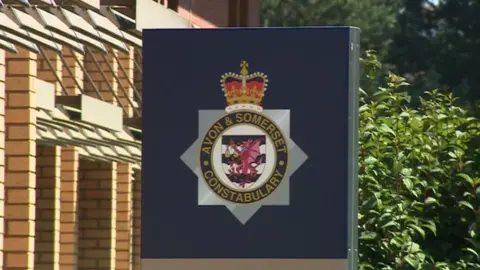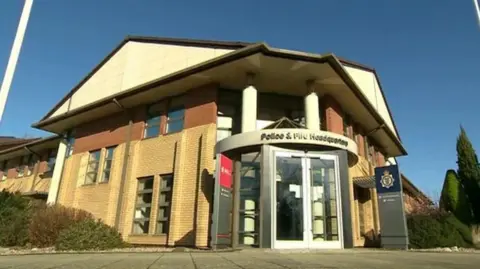Force needs to improve call response time, report finds
 BBC
BBCA police force has to make improvements, including its reaction time to emergency calls, a report has said.
In a recent assessment, the Inspectorate of Constabulary and Fire and Rescue Services (HMICFRS) found Avon and Somerset Constabulary was 'good' in two areas, 'adequate' in one area and 'requires improvement' in five areas.
His Majesty's Inspector of Constabulary Michelle Skeer said some of the areas for improvement were identical to those identified in its last inspection.
Avon and Somerset Police said it had made "significant and sustained progress since the inspectors came in".
Assistant Chief Constable Will White said: "We welcome this report, the commentary from inspectors that we're open and willing to learn and especially their praise for the way we engage with and treat the public."
He said since the inspection "we're now in the top 10 forces nationally in answering 999 calls and we've brought down the call abandonment rate".

Areas for improvement identified in the report include:
- How it allocates, plans and supervises investigations, "so victims get the service they deserve".
- How it identifies and prioritises vulnerable people for referral to other agencies.
- Its management of the Domestic Violence Disclosure Scheme.
- Its offender and suspect management.
- Response time answering 999 calls.
- The number of non-emergency calls abandoned.
- Wanted people at a constabulary-wide level, and the way in which they were prioritised for arrest.
- Consistency in achieving appropriate outcomes for victims.
'Closely monitoring'
The HMICFRS did find the constabulary was good at using police powers and treating people fairly and respectfully.
For example, it has made efforts to better understand how and when officers use handcuffing, incorporating the learning outcomes into frontline officer training.
It also found the force was good at preventing and deterring crime.
His Majesty's Inspector of Constabulary Michelle Skeer said: "The way the constabulary treats the public and manages its use of powers such as stop and search remains positive.
"So does the way the constabulary prevents and deters crime, and how it communicates with the public.
"However, the constabulary needs to make sure it properly allocates, plans and supervises investigations, so that victims get the service they deserve. It also needs to make sure that crime investigations are given the correct outcome when they are finalised and more investigations result in offenders being brought to justice.
"We also found that the leadership and governance of the constabulary could be improved in terms of its overall management structure and operating model, its use of data, and how its leaders communicate and work with their workforce," she added.
"I look forward to seeing how the constabulary brings about positive change in these areas. I will be closely monitoring this in the months ahead."
ACC Will White explained the force had "clear plans and increased resources" dedicated to tackling workflows.
It is also finding ways to "manage rising demand" and to ensure officers' time is "spent tackling the crimes which impact on the public the most".
Follow BBC Bristol on Facebook, X and Instagram. Send your story ideas to us on email or via WhatsApp on 0800 313 4630.
